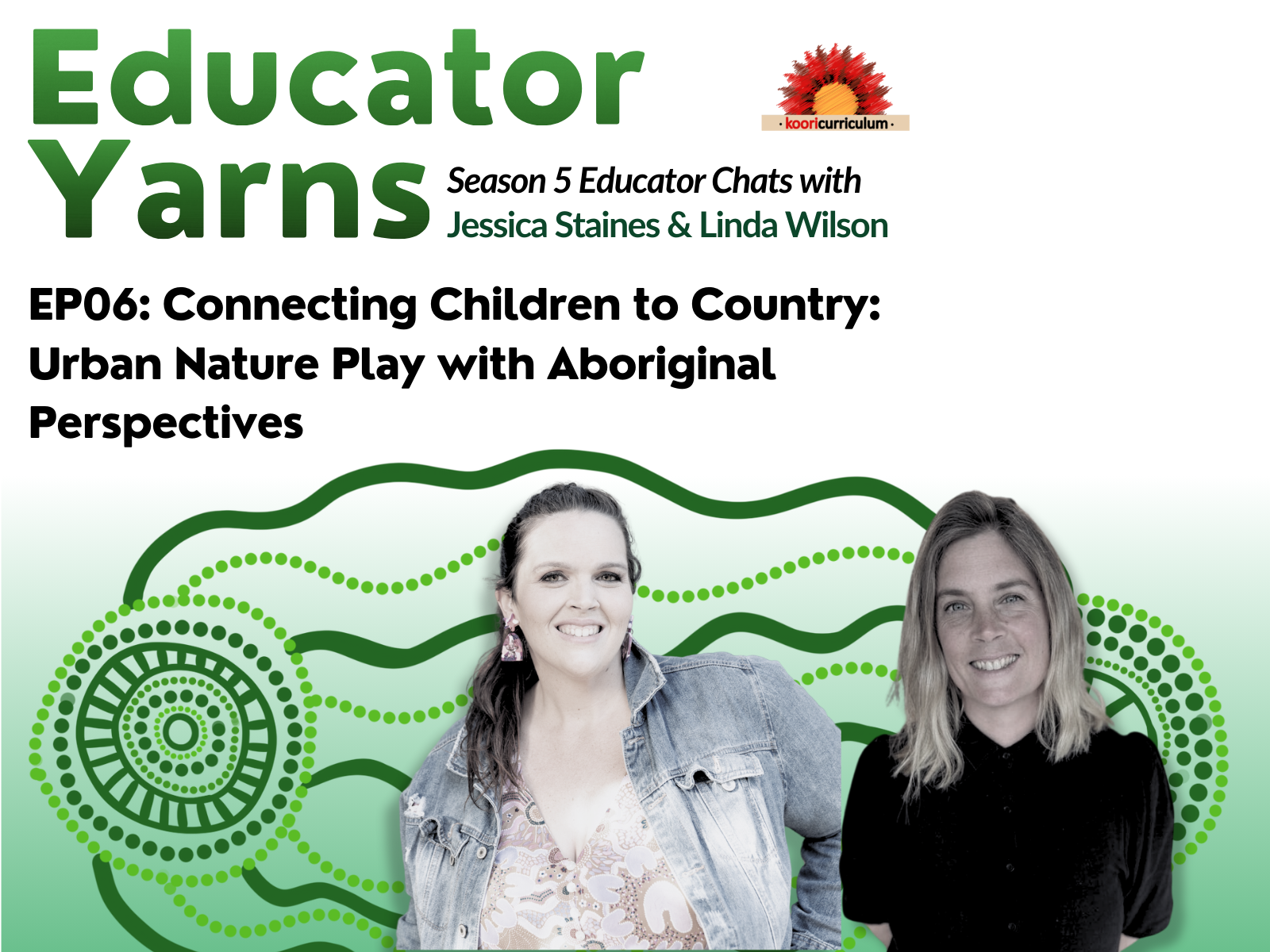In this episode of Educator Yarns, Jess Staines speaks with Linda Wilson, a dedicated early childhood teacher at Sentia Early Learning in Melbourne CBD.
Originally from Sweden, Linda shares how her childhood experiences exploring Swedish forests shaped her deep appreciation for nature as a teacher and guide. Now living and working on Wurundjeri Country, Linda beautifully intertwines her background in Nordic Forest pedagogy with Aboriginal perspectives in her teaching practice.
Despite being based in Melbourne's urban centre, Linda has led her kindergarten children on more than 30 excursions to connect with Country, learn about local Aboriginal history, and develop meaningful relationships with the land. Her approach demonstrates how educators can follow children's natural curiosity to explore Aboriginal perspectives, even in city-based settings.
Linda's journey from knowing very little about Aboriginal culture upon arriving in Australia to embedding it meaningfully in her practice offers valuable insights for educators seeking to deepen their understanding and approach to cultural connections.
Key Takeaways:
- The Swedish approach to early childhood education emphasises consistent time in nature, with some kindergartens located entirely outdoors where children cook on open fires and engage with natural resources.
- Revisiting the same natural spaces repeatedly is crucial for deepening children's connection and learning, allowing them to move beyond initial excitement to more meaningful engagement.
- Linda's personal experience of spending days exploring Swedish forests as a child shaped her teaching philosophy and her belief that nature can provide a grounding, calming influence in our fast-paced society.
- Children's questions about their local environment (like "Who made the Yarra River?" and "Where does it flow?") can serve as powerful starting points for exploring Aboriginal perspectives and connections to Country.
- The Aboriginal 8 Ways of Learning framework, particularly the 'land links' approach, provides a valuable structure for educators wanting to connect teaching through culture rather than just about culture.
- Each year, Linda's program focuses on different aspects of Country based on the children's interests—from the Yarra River's history to food sources at Birrarung Marr to land caring at Port Phillip Bay.
- Despite challenges in maintaining ongoing relationships with local Aboriginal communities in urban settings, educators can access ethical resources like the mapping tool developed by Melbourne Council in collaboration with Wurundjeri and Boon Wurrung peoples.
- Children in urban settings can develop meaningful connections to Country through regular excursions that help them recognise the Aboriginal history and significance of familiar places.
- There is a natural synergy between nature-based pedagogies (like the Swedish forest school approach) and Aboriginal perspectives on connection to land that educators can draw upon in their practice.
- Stories such as that of Bunjil the Eagle become powerful tools for children to understand Creation stories and develop respect for Traditional Owners, even when learning occurs primarily in urban environments.
Linda Wilson's journey from the forests of Sweden to teaching on Wurundjeri Country demonstrates how educators can weave together different cultural approaches to nature-based learning. By following children's natural curiosity, revisiting significant places, and drawing on ethical resources, educators can foster meaningful connections to Country even in urban settings.
As you reflect on your own practice, consider how you might incorporate regular experiences on Country that allow children to develop deeper relationships with the land and greater understanding of Aboriginal perspectives. How might you use mapping tools and local resources to enhance your knowledge and confidence in embedding Aboriginal perspectives in your program?
Resources discussed this episode:
- Koori Curriculum & Bush Kindy Australia Events
- Koori Curriculum Professional Development
- Bush Kindy Australia Professional Development
- Mapping the History of Melbourne’s Traditional Owners
- 8 Aboriginal Ways of Learning
- Possum Skin Pedagogy
Connect with Jessica Staines:
- Koori Curriculum
- Koori Curriculum Educator Community
- Shirley Pearl & Her Bush Friends
- The Koori Curriculum Club
- Koori Curriculum Events
Connect with Linda Wilson:
Subscribe to Educator Yarns on your favourite podcast platform:
- YouTube: https://www.youtube.com/@kooricurriculum
- iTunes: https://podcasts.apple.com/au/podcast/educator-yarns-with-jessica-staines/id1490507882
- Spotify: https://open.spotify.com/show/4J2AvSgFVSeUKmkp2cz8hc
- Amazon: https://music.amazon.com.au/podcasts/022a0fe4-3aa9-43a6-ac60-9fe2cd9d5b8e/educator-yarns-with-jessica-staines
- Stitcher: https://www.stitcher.com/podcast/educator-yarns-with-jessica-staines
- iHeart Radio: https://www.iheart.com/podcast/263-educator-yarns-with-jessic-82986004/




